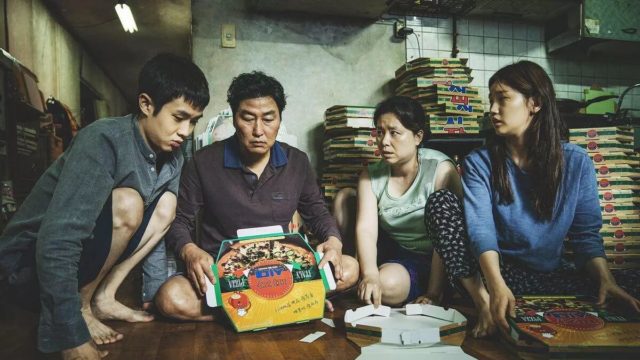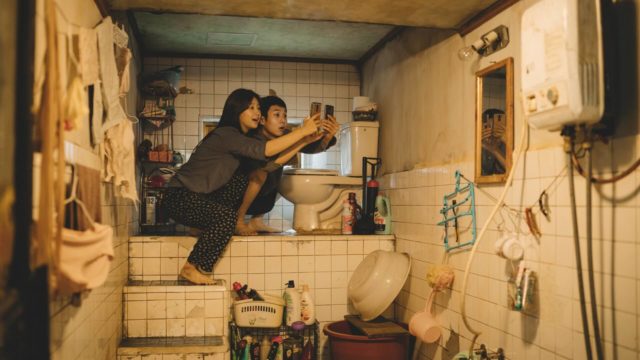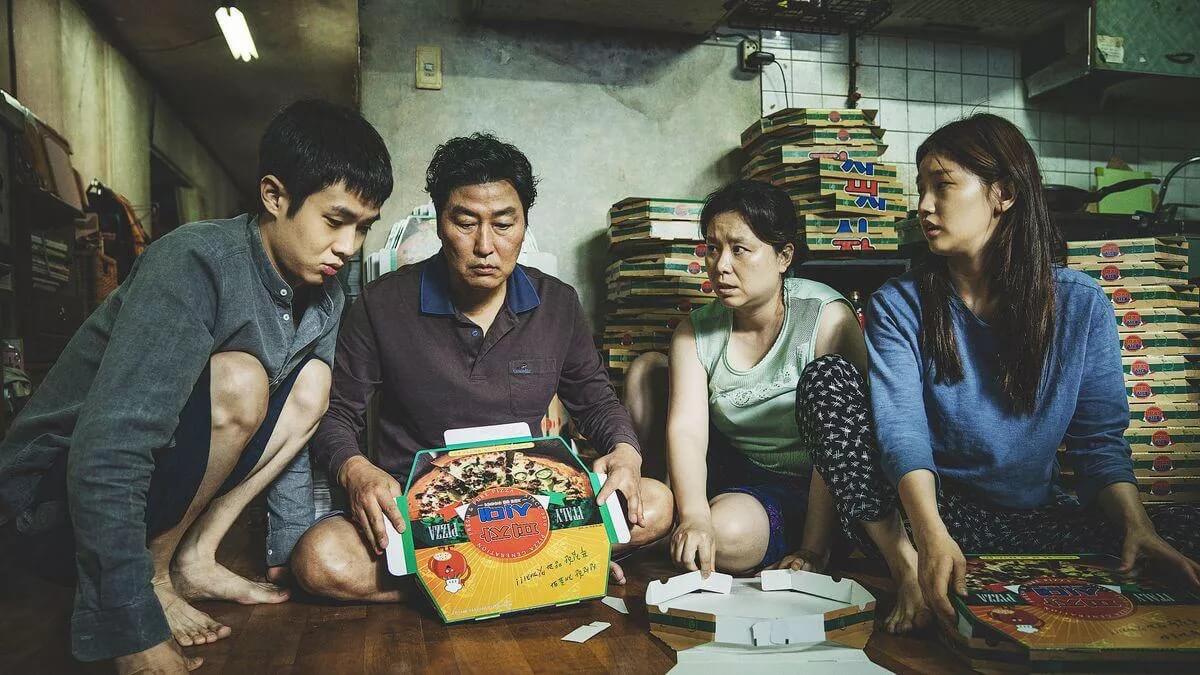Parasite, a South Korean dark comedy thriller movie has taken over the world and is being touted as one of the best made films of the decade, after sweeping the Oscars this year.
The film directed by Bong Joon-ho who interestingly also wrote the film’s story and had a hand in the film’s screenplay is getting glowing response from not just critics but audience alike as being a masterpiece.
The film that released in South Korea last year in May takes a look at the poor Kim family which becomes employees at the ultra-wealthy Park family.
The way the film transcends from a type of home invasion to thriller along with having some elements of comedy, suspense and horror is truly something to witness.
I for one, was sorely disappointed that the film would not be available in Indian theatres, so I could experience it fully. However, that soon changed when news came out that the film would actually be releasing in India.

Parasite Getting An Indian Release!
Parasite has already shocked the movie industry around the globe with it getting multiple Oscar awards in major categories.
No longer relegated to just the standard ‘foreign film’ category that most international films are limited to, it also got nominated for Best Picture with Bong Joon-ho getting one for Best Director.
The film’s already shown its prowess by winning the the Palme d’Or, the highest award, at the 2019 Cannes Film Festival and the Golden Globe for Best Foreign Language Film.
The film is now streaming on Amazon Prime in India.
The film releasing here will give more Indian people a look at some actually good cinema and perhaps give some pointers to our own Bollywood filmmakers.

Read More: Are Indian Actors Brave Enough To Hear Their Hypocrisy Being Called Out On Stage Like The Globes?
Better Than ‘The Godfather’?
Frankly, I never really got the craze for ‘The Godfather’, a 1972 film based on the Corleone mafia family on the brink of a massive change.
While I did appreciate the cinematic brilliance of it and how it showed the mafia world, and the acting was phenomenal, however, during the entire viewing of the first film I felt as if I was simply watching a movie, that nothing about it was real.
While with ‘Parasite’ every single thing shown in it reeked of the very real society around us.
In fact, Jessica Kang in a Variety review very well said that, “Bong is back and on brilliant form, but he is unmistakably, roaringly furious, and it registers because the target is so deserving, so enormous, so 2019: “Parasite” is a tick fat with the bitter blood of class rage.”
Because that is what the film boils down to, class inequality and divide where the rich just seem to get richer and the poor get poorer.
More than anything, the film somehow fits into the Indian society itself, showing how the rich seem to step on the poor to get the luxuries and privileges that they feel entitled to because of their wealth.
There is a scene in the movie where the children of the poor Kim family, Kim Ki-woo and Kim Ki-jeong are trying to get free Wi-Fi since they cannot afford to have their own phone plan.
They are trying every nook and cranny of their house and finally get some from a nearby cafe. To do so though, they have to climb on a level right beside their toilet, and this image itself was so strong to me. The fact that their very toilet, a place where people are disposing of their waste, is a level above them shows their disadvantageous position.

It also reminded me of a project website by Rahul Advani, a computer science student in Pune, who built a site called ‘Life In A Metro’ taking a look at how the Indian youth uses internet.
In it, he observed how students coming from economically weaker sections would use their college Wi-Fi or get hotspot from their friends. They couldn’t even use the free Wi-Fi that so many trendy cafes use as an incentive these days, because as per Advani, “these venues however attract a specific clientele – one that is typically affluent, elite and English-speaking – a tiny fraction of the city’s population.”
He also pointed out how the middle class youth do not own any credit card, computer or cars and are not the type to be able to afford visiting such expensive cafes.
This also relates to a Quartz report from 2017 that pointed at how the income inequality rate in India is probably at its highest since 1922 which is when the income tax was introduced.
According to the World Inequality Report 2018, “The structural changes to the economy, along with changes in tax regulation, appear to have had significant impact on income inequality in India since the 1980s.”
There is a scene in the movie in which the street the Kim family lives on is getting fumigated, when the wife asks for the windows to be closed, the father stops them and instead says that it’s a good thing since at least this way their own house will get some of it and kill the many insects living there.
In 2014, the report said that just the 1% of wealthy population of the country controlled a massive 23% of India’s total wealth. This is in stark contrast to 1982-83 when the rich had only 6% of control over the country’s wealth.

The poor 50% of the section meanwhile, only control a meager 16% of the country’s income.
In a recent report by Business Today it was revealed that, “India’s top 1% of the population now holds 73% of the wealth while 67 crore citizens, comprising the country’s poorest half, saw their wealth rise by just 1%.”
In common life itself, I’ve noticed so many rich societies and areas being built to give luxury to the rich but their impact is felt on the poor. From improper sewage system to disrupting slum areas to create room for a luxury apartment building and more, somehow it feels like the wealthy constantly step on the backs of the poor to have a better lifestyle.
This is exactly what the film ‘Parasite’ touches upon so perfectly and why it’s actually great that it’s getting an Indian release.
Image Credits: Google Images
Sources: Hindustan Times, Quartz, Variety
Find the blogger @chirali_08






























